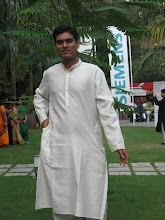Hindu society is sectionalised into different castes with each caste having its own customs and traditions and some unique feature. But, over the years this diversity has been turned into a vertical divide with some castes treating themselves as superior and privileged and the others considered as undeserving. To counter this deprivation of opportunities and equal status, the Policy of Reservations was propounded with reservations in education and jobs. The purpose is to bring greater equality in the society by removing the economic and social barriers.
But, the policy which was initially envisioned for a period of 10 years has been extended again and again. This clearly shows that the policy hasn’t yielded the desired results as it has had to be extended and the end goal is still out of sight. Only a section of the reserved class has taken advantage of the reservation policy with large numbers still deprived. Some people have taken advantage over 2-3 generations while many have not been benefited at all. Also there are large numbers of people outside the SC/STs who are poor and downtrodden- upper castes included. A survey by the Government of Karnataka in one of the districts in 1971 found that the Brahmins were the poorest and most illiterate of all.
One more problem with the policy is the apparent lack of stress on quality. Exclusively reserving a seat in an institution may deprive a much more deserving candidate than getting it. Also, it is a human tendency to become complacent when he knows that only this much is sufficient and no more is needed. The issue of gap in the opportunities available in urban/semi-urban and rural areas is a major roadblock in ensuring social justice. Though the challenge is to provide equal opportunities to everyone despite ones caste, there is a fear of reverse discrimination. Caste identities are becoming more pronounced and attaining political/electoral overtones, where nothing also and only caste matters.
Thus, the society is getting more fragmented. Instead on fighting on one piece of bread, we must try and earn more bread and in the process ensure that everybody gets a piece of it. Opportunities must be provided to everybody, but the reward should be given according to the hard work put in and merit. The challenge is to wipe out the caste antagonism and create a just society which lives in harmony and no underneath friction. Instead of reservation on caste lines, we can have special support for students who have been incapacitated by adverse economic and social conditions.
Disclaimer: The views expresses are not meant to hurt anybody but rather are an attempt to write down my feeling and opinions about the topic. The whole passage was written in 23 mins and thus is not a true representation of my mind.
Wednesday, December 14, 2005
Subscribe to:
Post Comments (Atom)


3 comments:
"The whole passage was written in 23 mins and thus is not a true representation of my mind".
is it that u go mad once in a while???
Instead of the government systematically abolishing the caste system is actually working towards the opposite. There is absolutely no sense, giving preferences to certain sections of society. Work should be undertaken in such a manner, that every small village is self sustainable, have a school where children are educated irrespective of caste and creed till the age of 14. Instead of working towards that goal and passing bills for that purpose, the government and related people are happy playing with the caste card. There is no doubt that the admissions or ne other issue related to reservations should be based on merit in order to avoid discrimation. I strongly believe, when a kid falls rushing towards and helping him would never make him stand up on his own. Similarly, reservations is a social evil. People have to stand on their feet, they can perform, the oppurtunities are to be grabbed, no one can take away one's destiny. The only question remains is how do we enlighten our great politicians about it ?
language (you asked for it) - 2/10
Post a Comment